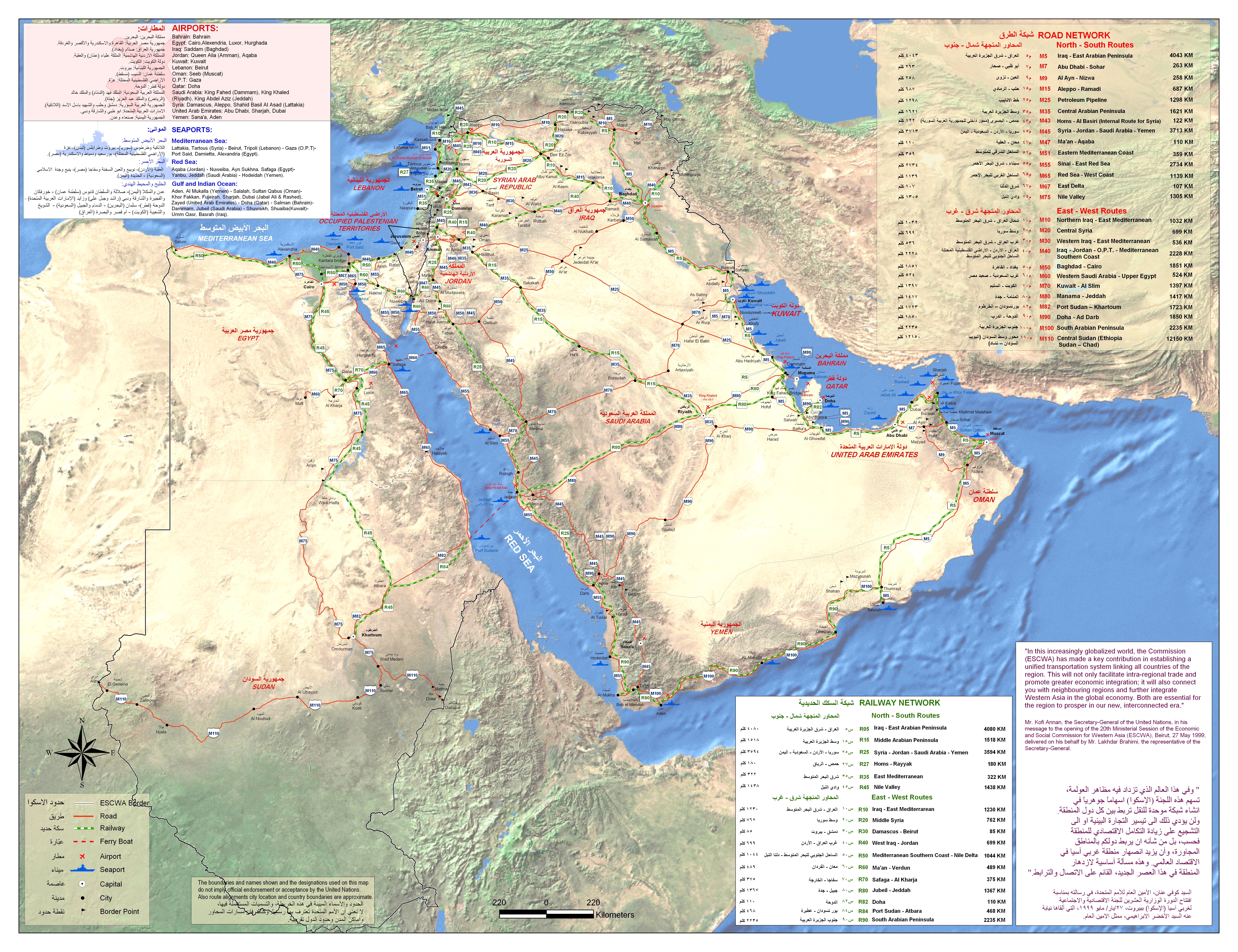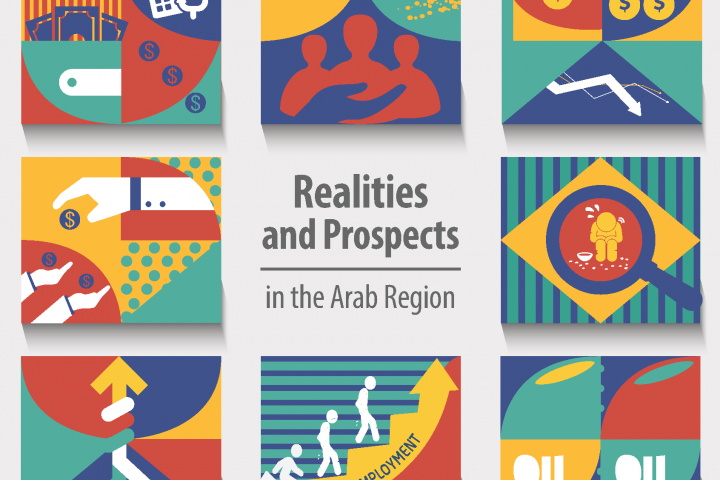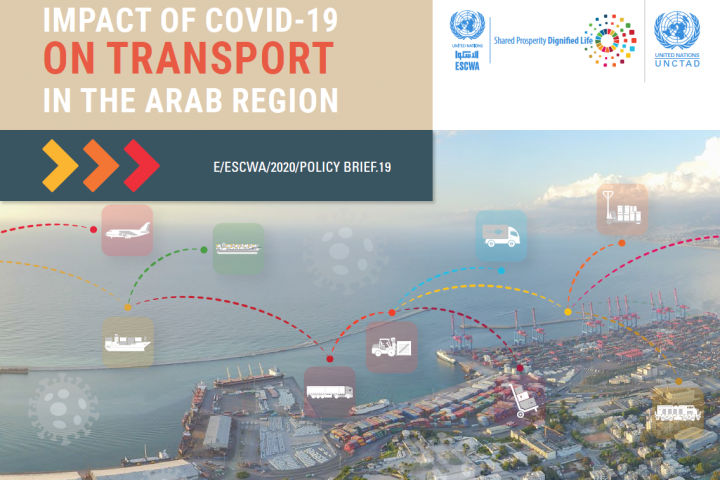News
20 Sep 2018
Beirut, Lebanon
ESCWA devising strategy for a pan-Arab multimodal transport system

These efforts fall under a large-scale target of ESCWA to support member States in improving transport which generally suffers from weak infrastructure and low services. This work covers megatrends in the sector and their impact on the region, spanning across six categories: (1) geography and environment; (2) population and society; (3) economy and finance; (4) regulation and governance; (5) political factors and conflict; and (6) technology and innovation.
These megatrends and more were discussed at the biennial 30th Ministerial Session of ESCWA, held last June in Beirut, where ministers and senior delegates exchanged their perspectives and recommendations regarding the study prepared by the Regional Commission. The officials unanimously stressed the importance of regional cooperation to find collective long-term solutions to the key transport challenges in the Arab region.
According to the ESCWA Regional Advisor on Transport and Logistics, Yarob Badr, the project has been widely acclaimed by Arab transport officials and stakeholders. The Islamic Development Bank (IDB) expressed its readiness to finance the part related to the development of the Geographic Information System (GIS), and the World Bank has also offered financial support to some of the project’s activities.
Factors currently impacting change include the Belt and Road Initiative as well as the navigation across the Northern Sea Route which has become increasingly possible as a result of the steady rise in global temperature, which is melting the Arctic polar ice caps and opening the way for commercial sailing in ever-growing parts of the Arctic Ocean over longer periods of the year. In addition, increasing environmental concerns and the decreasing global demand for fossil fuels are expected to lead to a drop in oil transport from the Arab region to the rest of the world.
According to the study, rapid population growth and urbanisation in the Arab region require enhancing public transport as a solution to daily traffic congestions, and changes in consumption patterns will directly affect international trade trends. Transport is also affected by development financing challenges amidst a sharp drop in Arab countries’ revenue and funding allocations for development due to continuing crises in some countries and a reduction in petroleum product sales that are the main source of government funding in others.
Moreover, there is a growing need for an Arab consensus on the market specifications of goods and on their transport procedures. Joining international agreements that govern transport at the regional and international levels is also needed at a time when accession of Arab countries to international land transport agreements is relatively weak. Based on this, ESCWA is encouraging its member States to accede to two regional agreements, the Agreement on International Roads in the Arab Mashreq and the Agreement on International Railways in the Arab Mashreq, while urging them to bolster their cooperation in maritime transport.
History has shown the effects of conflict and war on altering regional transport routes. This means that the potential impact on the transport sector of political crises and conflicts raging in some Arab countries since the turn of the century should be closely examined , as there is a risk that traditional routes could disappear and be replaced by temporary or permanent alternative ones.
Meanwhile, transport in the world has already started witnessing the impact of technology and innovation. This includes the use of clean energy sources and solar power, hyperloop trains and driverless cars, which might be the most significant outcome of the digital revolution in the field of transport, as they are expected to drastically alter perspectives on the sector, with people no longer needing to own cars to travel freely.
According to Mr. Badr, the project is expected to be implemented in three years, beginning with baseline studies and GIS mapping of transport networks and facilities in the Arab region, followed by an enhancement of the conceptual framework of the project which will be adopted by a team of national coordinators. This will be followed by several phases of implementation once funding is provided.
In the meantime, ESCWA is approaching other stakeholders and partners to garner additional support for the implementation of the project, Mr. Badr added.



